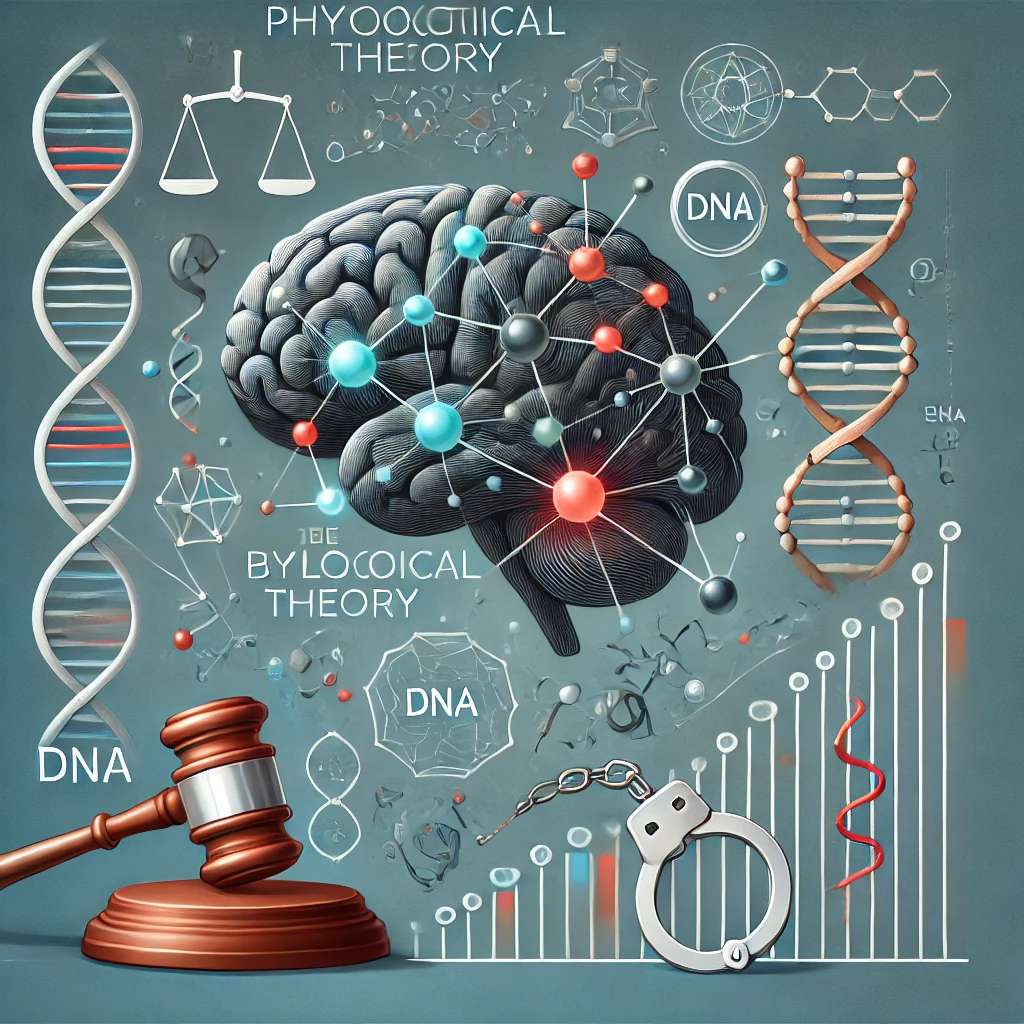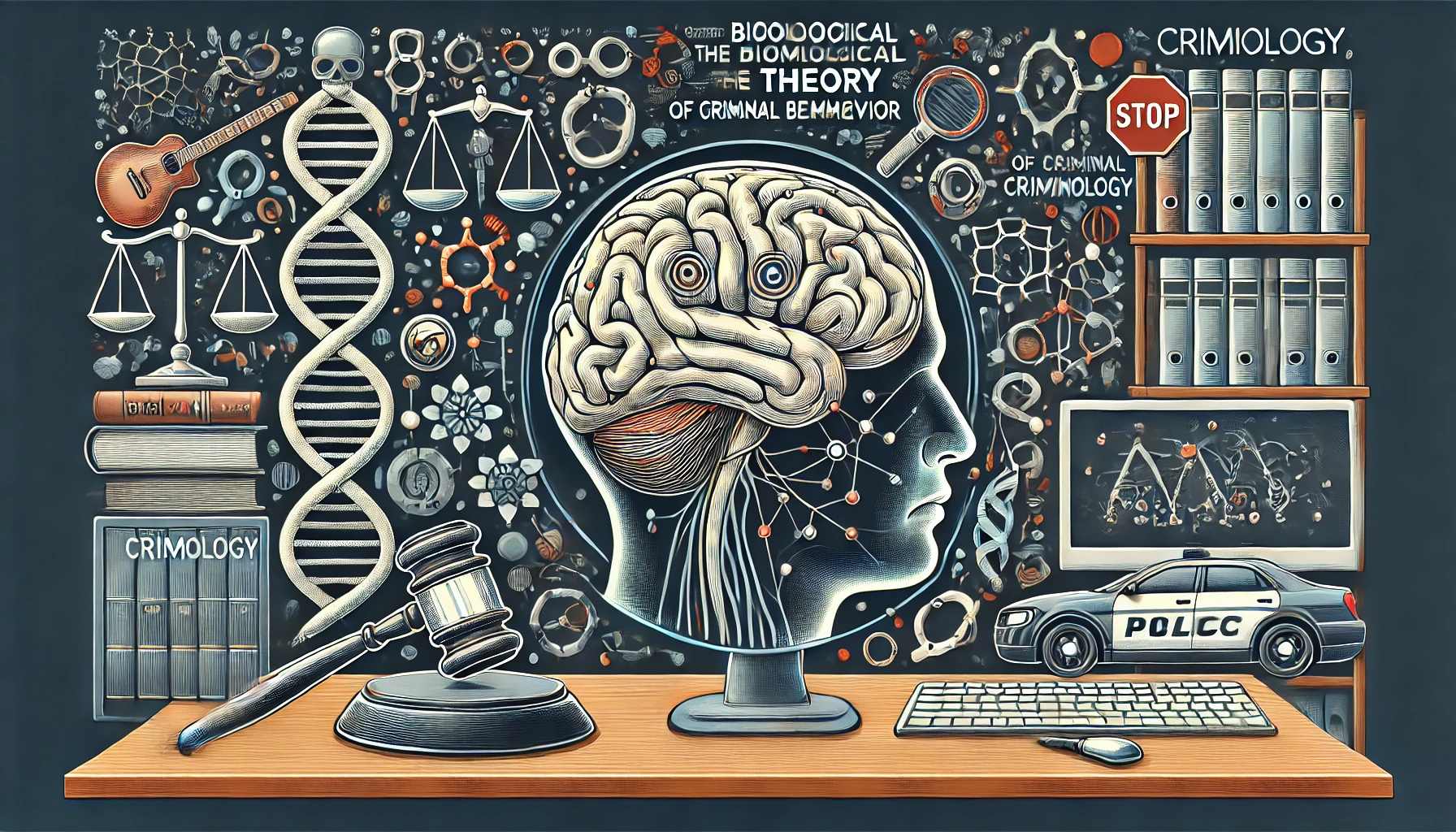Introduction
Physiological theories in criminology seek to explain criminal behavior through biological and physical factors. These theories suggest that innate physiological traits, such as brain structure, genetics, or hormonal imbalances, play a significant role in predisposing individuals to criminal tendencies. By understanding these factors, researchers aim to uncover the biological underpinnings of deviance.
The Basis of Physiological Theory
- Definition
Physiological theories focus on the biological and physical attributes of individuals to understand their behaviors. These include genetic inheritance, neurological conditions, and physiological responses. - Historical Development
The foundation of physiological theories can be traced to early criminologists like Cesare Lombroso, who theorized that criminals possess distinct physical characteristics, labeling them as “born criminals.”
Key Concepts in Physiological Theory
- Biological Determinism
Early physiological theories, such as Lombroso’s, emphasized that physical features, including skull shape, facial asymmetry, or body structure, were indicators of criminal predisposition. - Genetics and Crime
Modern physiological theories explore genetic links to crime. Studies on twins and families have suggested a hereditary component to criminal behavior. For instance, identical twins often exhibit similar tendencies even when raised apart. - Brain Structure and Function
Advances in neuroscience reveal how abnormalities in brain regions, such as the prefrontal cortex or amygdala, can influence impulsivity, aggression, and decision-making, leading to criminal actions. - Hormonal and Neurochemical Influences
- Testosterone: High levels of testosterone have been associated with increased aggression and violent behavior.
- Serotonin Imbalance: Low serotonin levels can contribute to impulsive and antisocial behavior.
- Cortisol: Stress hormone irregularities have also been linked to aggressive tendencies.
- Environmental Interactions
While physiological theories emphasize biology, they acknowledge the interplay between genetic predispositions and environmental factors, such as trauma, substance abuse, or poor nutrition.
Applications of Physiological Theories in Criminology
- Risk Assessment
Identifying physiological markers, such as brain scans or hormonal levels, can aid in assessing the likelihood of criminal behavior and recidivism. - Early Intervention Programs
By recognizing genetic and physiological risk factors early, intervention programs can provide counseling, medication, or therapy to mitigate criminal tendencies. - Rehabilitation and Treatment
Understanding physiological factors allows for more targeted rehabilitation methods, such as neurofeedback therapy, hormone regulation, or medical treatments for neurological conditions.

Critiques of Physiological Theories
- Reductionism
Physiological theories are often criticized for reducing complex human behavior to biological factors, neglecting social, psychological, and cultural influences. - Ethical Concerns
Labeling individuals based on physiological traits raises ethical questions regarding discrimination and stigmatization. - Determinism vs. Free Will
Critics argue that these theories challenge the concept of free will, suggesting that individuals are biologically destined for crime.
Modern Perspectives and Integrative Approaches
Physiological theories have evolved to integrate with psychological and social frameworks, forming biosocial criminology. This approach considers both biological predispositions and environmental influences, offering a more comprehensive understanding of criminal behavior.
Conclusion
Physiological theories in criminology provide valuable insights into the biological aspects of criminal behavior, emphasizing the role of genetics, brain function, and hormonal influences. While they face criticism for being overly deterministic, these theories have paved the way for advancements in crime prevention, risk assessment, and rehabilitation efforts. By integrating physiological insights with social and psychological perspectives, criminology can better address the complexities of criminal behavior.

